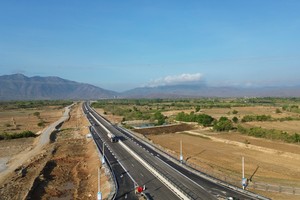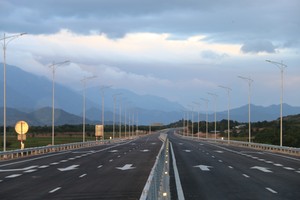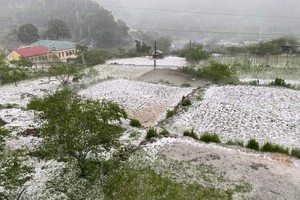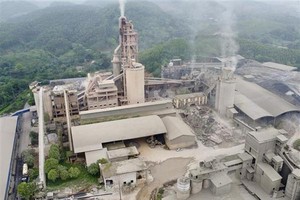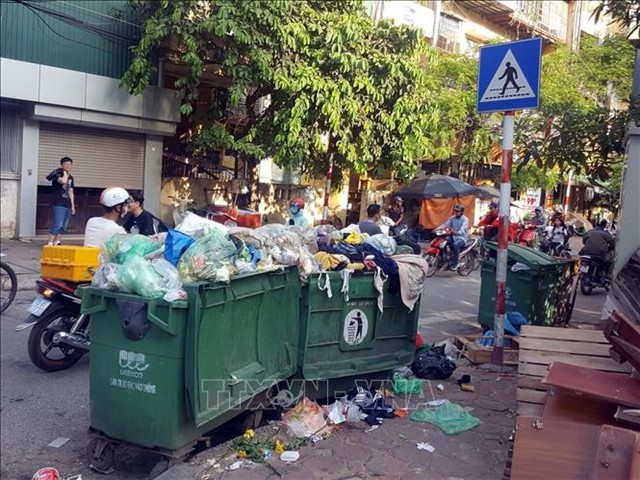
These are two new parts of the draft amended Law on Environment, which has been introduced to the National Assembly’s agenda last month and is open for public discussion.
At a press briefing about the draft law on Wednesday, vice head of Vietnam Environment Administration under the Ministry of Environment and Natural Resources, Nguyen Thuong Hien , said that State management over solid waste in Vietnam was inadequate.
Ministries and agencies were involved in overseeing the issue, resulting in overlaps and a lack of co-operation, he said, adding that improper solid waste management threatened social order and security. For example, some people are very concerned about dumping sites that cause pollution to soil and underground water.
Hien said that waste classification at source had not become common in Vietnam, while the country had few policies or mechanisms to promote waste classification, consequently, more and more waste was produced and discharged into the environment.
“The current law on environment protection does not have any regulations on the “polluter-pays principle”, so it fails to encourage people to reduce, reuse, recycle and classify the waste at source,” Hien said.
According to the Organisation for Economic Co-operation and Development, the polluter-pays principle is the principle according to which the polluter should bear the cost of measures to reduce pollution to the extent of either the damage done to society or the exceeding of an acceptable level of pollution.
He said that the drafted amendments to the Law on Environment were expected to solve the shortcomings, with a highlight on the polluter-pays principle instead of current regulations in which everyone pays the same fee regardless of how much waste they produce and discharge.
Under the draft bill, solid waste generated from daily activities should be classified into five groups: recyclable solid waste, food waste or readily biodegradable organic waste, dangerous waste, bulky waste and other common waste.
“If waste is classified properly at source, the amount of waste that needs to be treated would be reduced and payment for waste treatment would fall too,” Hien said.
The classified daily waste would be put in special bags sold by local authorities. People pay waste treatment fees through buying such bags.
For recyclable waste, people can use their own bags without buying special ones from authorities.
It was expected that revenue from selling the bags could help cover 30-50 per cent of waste treatment costs in urban areas in Vietnam, Hien said.
Phan Tuan Hung, head of the Legal Affairs Department under the Environment Ministry, said that the supervisory role of social political organisations like the Vietnam Fatherland Front, associations of women, youth, elderly and residential groups should be included in the law to ensure proper waste classification, collection, transport and treatment.
“The right public awareness and actions over the issue are the most important factor in implementing the law effectively,” Hung said.
According to the Vietnam Environment Administration, about 61,000 tons of solid waste is produced in Vietnam daily, of which 24,000 tons is from rural areas.
The volume of solid waste increased from 28 million tons in 2009 to 35.7 million tons in 2015 and continues to increase by about ten per cent yearly.
